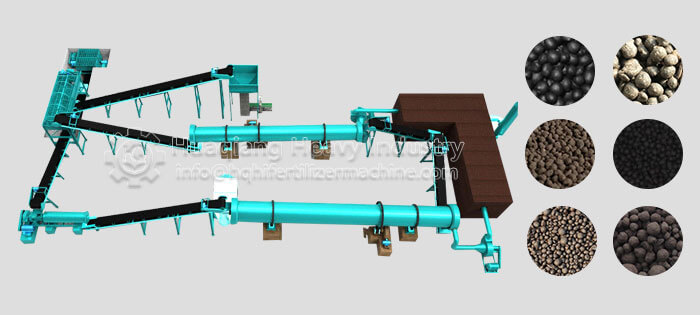
With growing awareness of environmental protection and higher standards for agricultural product quality, bio-organic fertilizer production lines are showing huge potential. Here's why:
1. Rising Demand in Agriculture
Sustainable Farming: Bio-organic fertilizers improve soil structure, boost microbial activity, and enhance water and nutrient retention. This drives farmers and agribusinesses to adopt them, fueling demand for production lines.
Green Food Trends: Consumers increasingly want safe, organic produce. Bio-organic fertilizers—free from harmful additives and rich in nutrients—help grow high-quality crops. This pushes farmers to invest more, creating steady market demand for these production lines.

2. Environmental Policies
Pollution Control: Governments are tackling agricultural pollution. Bio-organic fertilizers cut chemical fertilizer use, reducing water and soil contamination from runoff. Policies now encourage companies to set up bio-organic fertilizer production lines to meet eco-standards.
Waste Recycling: These lines turn farm waste—like livestock manure and crop straw—into fertilizer. This aligns with national sustainability goals, earning government support.
3. Tech Advancements
Efficient Production: Better biotech and engineering have made production lines faster and more reliable. For instance, advanced fermentation tech shortens processing time and improves quality, lowering costs while boosting competitiveness.
In short, backed by farming needs, eco-policies, and innovation, bio-organic fertilizer production lines have a bright future.